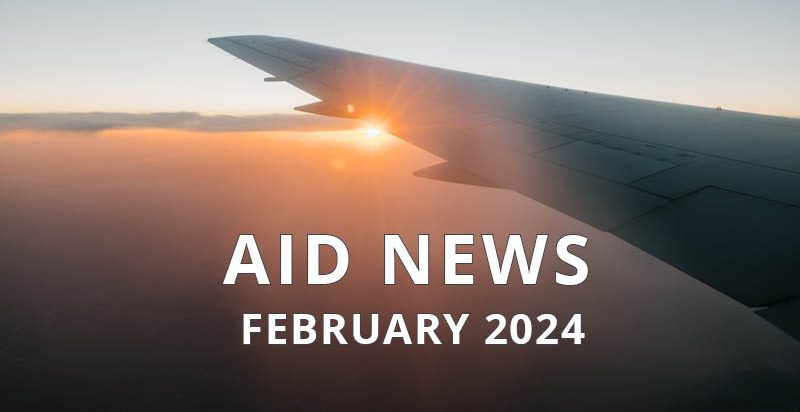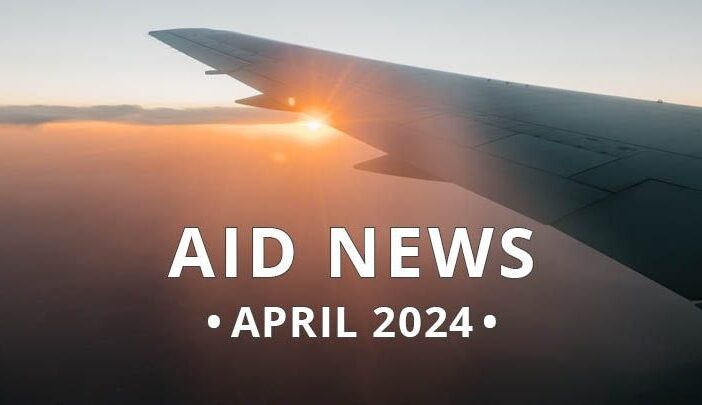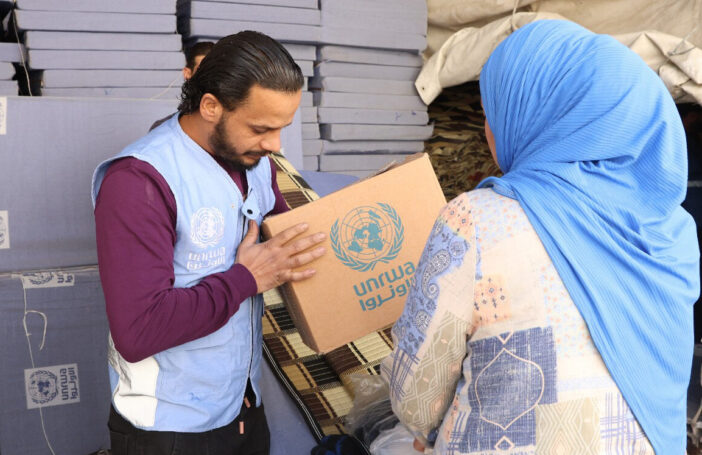Our monthly update of news and analysis on aid and international development, with a focus on Australian aid.
Australian Aid
As part of a joint statement with his Canadian and New Zealand counterparts, Prime Minister Anthony Albanese has warned Israel that the humanitarian consequences of a military operation in Rafah, a city 30 kilometres south-west of Gaza City, would be “catastrophic”. Foreign Minister Penny Wong repeated this warning in Senate Estimates hearings, stating that a major offensive “would bring further devastation to more than a million civilians seeking shelter in Rafah, many there by Israel’s direction … Australia believes that this would be unjustifiable”.
In the face of the ongoing humanitarian crisis in Sudan — where some 5.4 million people have been internally displaced and over 1.4 million people have fled to neighbouring countries since April 2023 — ACFID’s members have relaunched their consolidated funding appeal.
Tuvalu’s incoming government has stated that while it supports the “broad principles and objectives of the Tuvalu-Australia Falepili Union”, it also “acknowledges the absence of transparency and [public] consultations” and will work with Australia towards a “workable arrangement” that safeguards “the integrity of the sovereignty of Tuvalu”.
At their leaders’ meeting, Prime Minister Albanese and PNG’s Prime Minister James Marape highlighted the role that budget support has played in buttressing PNG’s fiscal position and Australia’s commitment to supporting PNG’s ongoing “budget repair efforts”. Australia has subsequently announced a package of measures to support PNG’s efforts to combat HIV/AIDS, malaria and antimicrobial resistance, and to support medical research.
Following fresh outbreaks of violence in the Highlands region, Prime Minister Marape said that a new police unit established to deal with what he has labelled “domestic terrorists” and comprising 200 officers will be trained by Australia.
A Senate committee has recommended that, among other changes, DFAT reform its due diligence mechanisms better to support local organisations and beneficiaries when working in conflict environments such as Myanmar. Government senators have argued against these recommendations, contending that the changes have “the potential to decrease the level of oversight and therefore increase the risk to Australian development funds.”
Experts from the Lowy Institute have argued that if Australia is genuine about supporting the energy transition in Southeast Asia at the scale required, it should “go big or go home” and establish a dedicated climate infrastructure financing facility for the region.
DFAT has released its statistical summary for 2022-23 and associated data detailing Australia’s geographic, sectoral and other official development assistance (ODA) expenditure last financial year. The amount of Australia’s aid counted towards climate finance increased from $449 million (10% of total ODA) in 2021-22 to $571 million (12%) in 2022-23 and the amount counted towards gender equality increased from $1.5 billion (34%) to $1.76 billion (37%) over the same period.*
Global/regional aid
A USD90 billion national security bill passed by the US Senate includes provision for USD9 billion to address humanitarian and refugee crises arising from the war in Ukraine, Gaza and other conflicts, up to USD7.85 billion in direct budget support for Ukraine, and funding to support World Bank and International Monetary Fund crisis response facilities for low-income countries. President Joe Biden has repeatedly urged House Republicans, many of whom oppose further aid to Ukraine, to support the package.
The Senate bill omits the USD7.1 billion in Pacific aid funding requested by the Biden administration to fund the Compacts of Free Association with the Federated States of Micronesia, the Marshall Islands and Palau. Palau’s President Surangel Whipps has warned that the delays surrounding congressional approval have resulted in intensified aid and investment overtures from China designed to entice the country to switch diplomatic recognition from Taiwan to Beijing.
Indonesia has progressed its efforts to join the Paris-based Organisation for Economic Cooperation and Development (OECD). If successful, it would be the first Southeast Asian country and only the third Asian country, along with Japan and South Korea, to join the body.
The UN Central Emergency Response Fund (CERF) has allocated just USD100 million in total for the world’s least-funded humanitarian appeals – including only USD20 million each for the ongoing crises in the Republic of Congo, Sudan and Syria. The allocation comes in the wake of reduced funding to CERF in 2023, its lowest since 2018, “and the dire reality that donor funding is failing to keep up with soaring humanitarian needs.”
The head of the World Bank, Ajay Banga, has urged shareholders and donors to help him reform the more than 1,100 individual rules that the bank must abide by in order to speed up its ability to provide concessional finance to the world’s lowest income countries.
Experts and former staff from the OECD’s Development Assistance Committee have criticised the body’s new rules on counting private sector investments as aid, with one former senior OECD official arguing that they facilitate the counting of transactions that involve no net transfer of resources to developing countries and that, in many cases, will actually produce a commercial return to “donors”.
Books, articles, podcasts etc.
The US-based Centre for Global Development has published a useful infographic of the major development finance events and the big donor elections scheduled for 2024 and 2025.
Source: Janeen Madan Keller, Clemence Landers and Nico Martinez, The 2024-2025 Replenishment Traffic Jam: Are We Headed for a Pileup?, Center for Global Development, 8 February 2024.
A new article in International Affairs (open access) explores some of underlying dynamics at play in the ongoing stalemate between China and Western creditors when it comes to debt relief.
The latest episode of the Statecraftiness podcast features Australian and regional experts on how words (spoken and unspoken) matter when it comes to translating the arcane (and ubiquitous) concept of “statecraft” in the government’s 2023 Defence Strategic Review and International Development Policy.
A new report from AidData estimates that the US government provided USD63.7 billion in concessional finance and official development assistance to 46 Indo-Pacific economies between 2012 and 2022. Total US aid, trade, remittance and investment flows over this period are valued at USD24.5 trillion.
* The 2023 international development policy’s new gender and climate targets apply to investments valued at over $3 million, not total aid. In the case of climate change, the targets only apply to bilateral and regional investments over $3 million.




